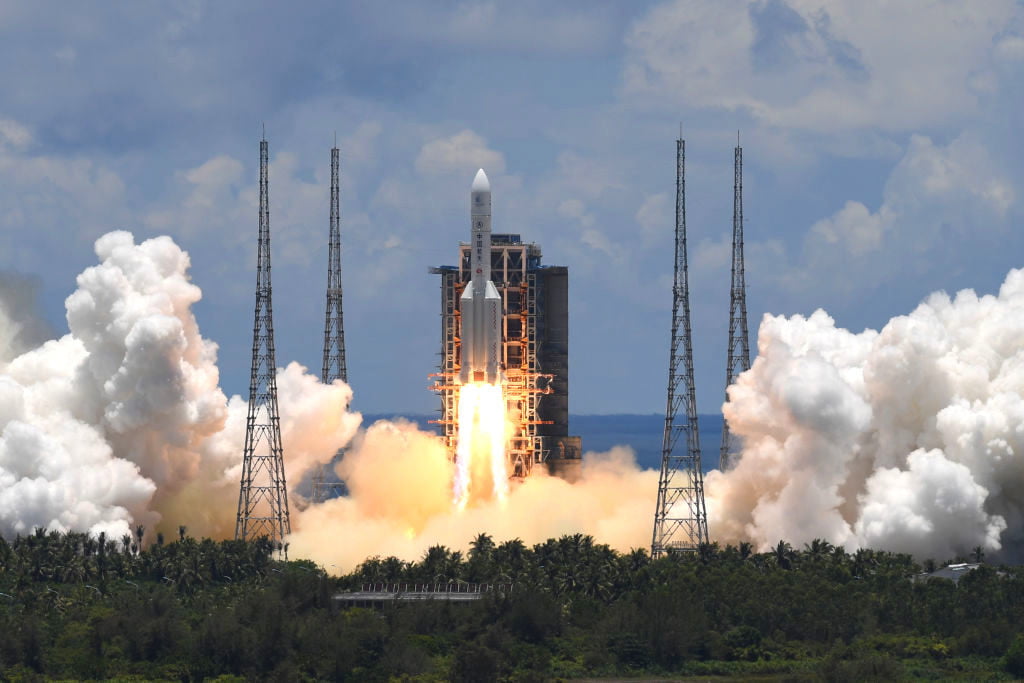The world has been watching the skies this week as a 30-meter-tall Chinese rocket came tumbling back to Earth in an uncontrolled reentry. The debris from the rocket has now landed in the Indian Ocean, arriving late in the evening of Saturday, May 9, with no reports of anyone being injured.
Although debris from the rocket was unlikely to hurt anyone, the event gained public attention due to the difficulty in predicting where or when exactly the debris would land. A similar reentry occurred with the Skylab space station in 1979, which resulted in pieces of debris being spread across parts of Australia, and which gained similar media interest.
The Chinese Space Agency announced in a brief statement that the rocket, a Long March 5B, reentered the atmosphere at 7:24 p.m. PT and was largely destroyed. Debris from the rocket fell into the Indian Ocean.
Although it is common for parts of rockets to fall to Earth, this event was unusual because of the part of the rocket involved. As SpaceNews explains, in the case of a launch of a reusable rocket like a SpaceX Falcon 9, the rocket’s first stage is jettisoned before the rocket reaches orbit and falls within a pre-defined (and uninhabited) area. The smaller upper stage then continues into orbit.
But in the case of this Long March 5B, its first and upper stages both reached orbit. That meant that there was a larger volume of debris created when it reentered the atmosphere, as parts of the rocket constructed of heat-resistant materials could survive the heat of reentry and end up falling to Earth.
While Chinese authorities were slow to acknowledge the issue of this particular rocket, NASA officials condemned the country’s approach to space debris.
“Spacefaring nations must minimize the risks to people and property on Earth of re-entries of space objects and maximize transparency regarding those operations,” NASA Administrator Bill Nelson said in a statement today. “It is clear that China is failing to meet responsible standards regarding their space debris. It is critical that China and all spacefaring nations and commercial entities act responsibly and transparently in space to ensure the safety, stability, security, and long-term sustainability of outer space activities.”
Editors’ Recommendations

